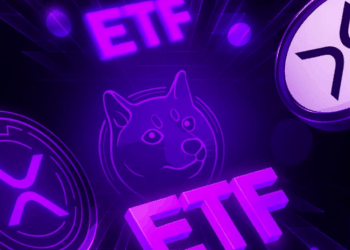Cryptocurrency has grown into a major financial asset, with investors and traders flocking to digital currencies like Bitcoin, Ethereum, and stablecoins. If you’re looking to enter the crypto market, understanding the process of buying cryptocurrency is crucial. This guide will walk you through the steps, platforms, and security measures to ensure a smooth and safe purchase.
1. Understanding Cryptocurrency
Cryptocurrency is a digital currency secured by cryptography and powered by blockchain technology. Unlike traditional money, it operates independently of banks and governments. The most popular cryptocurrencies include:
- Bitcoin (BTC) – The first and most widely known cryptocurrency.
- Ethereum (ETH) – A blockchain supporting smart contracts and decentralized applications.
- Stablecoins – Cryptos pegged to fiat currencies (like USDC or Tether) to maintain stability.
2. Choosing the Right Exchange or Broker
There are multiple ways to buy cryptocurrencies, but the most common is through a crypto exchange or broker.
- Centralized exchanges (CEX) – Platforms like Binance, Coinbase, and Kraken provide a secure way to trade.
- Decentralized exchanges (DEX) – Peer-to-peer marketplaces like Uniswap or PancakeSwap allow trading without intermediaries.
- Crypto brokers – Services like eToro simplify the buying process for beginners.
3. Best Cryptocurrency Exchanges
1. Binance 
Binance is one of the largest and most popular cryptocurrency exchanges globally, known for its extensive trading options and competitive fees.
Main Features:
- Supports spot, futures, and margin trading.
- Offers staking, savings, and lending services.
- Advanced trading tools, including charting and analytics.
- Binance Smart Chain (BSC) ecosystem integration.
Pros:
- Low trading fees compared to competitors.
- High liquidity and fast transactions.
- Wide range of trading pairs and financial products.
Cons:
- Regulatory scrutiny in multiple countries.
- Complex interface for beginners.
2. Coinbase 
Coinbase is a user-friendly exchange, ideal for beginners looking to buy and sell cryptocurrencies securely.
Main Features:
- Simple interface with easy fiat-to-crypto transactions.
- Secure storage with insurance coverage.
- Educational resources for new investors.
- Coinbase Pro for advanced trading.
Pros:
- Beginner-friendly platform.
- Strong security measures and regulatory compliance.
- Direct fiat deposits and withdrawals.
Cons:
- Higher fees compared to other exchanges.
- Limited advanced trading features.
3. Bybit 
Bybit is a derivatives-focused exchange that offers leveraged trading and futures contracts.
- Main Features:- Supports perpetual contracts and options trading.
- High-speed order execution.
- Competitive fees for derivatives trading.
- Copy trading feature for beginners.
Pros:
- Low latency and fast transactions.
- High leverage options for traders.
- Strong security measures.
Cons:
- Limited fiat deposit options.
- Not available in some regions due to regulations.
4. Coinmama 
Coinmama is a straightforward exchange that allows users to buy cryptocurrencies instantly with fiat currency.
Main Features:
- Instant crypto purchases with credit/debit cards.
- No complex trading features—ideal for beginners.
- High spending limits for verified users.
Pros:
- Quick and easy purchases.
- No need for a separate wallet—coins are sent directly.
- Strong customer support.
Cons:
- Higher fees compared to exchanges with trading platforms.
- No advanced trading features.
5. CEX.IO 
CEX.IO is a regulated exchange offering a variety of trading options, including spot and margin trading.
Main Features:
- Supports fiat deposits via bank transfers and cards.
- Margin trading and staking options.
- Mobile app for easy trading.
Pros:
- Regulated and secure platform.
- Multiple payment methods for fiat deposits.
- User-friendly interface.
Cons:
- Higher fees for instant purchases.
- Limited selection of altcoins compared to Binance.
4. Creating an Account & Verifying Your Identity
To buy crypto, you need to create an account on an exchange. Most platforms require Know Your Customer (KYC) verification, which includes submitting identification to comply with regulations. This step enhances security and prevents fraud.
5. Depositing Funds
Once your account is verified, you need to add funds before purchasing cryptocurrency. Common deposit methods include:
- Bank transfer – Direct deposits from your bank account.
- Credit/debit card – Instant purchases using cards, though fees may apply.
- Third-party payment services – Platforms like PayPal and Apple Pay are integrated with certain exchanges.
6. Making Your First Crypto Purchase
After funding your account, follow these steps to buy cryptocurrency:
- Navigate to the trading section of your exchange.
- Select the cryptocurrency you wish to buy (e.g., Bitcoin).
- Enter the amount in USD, EUR, or another fiat currency.
- Review the transaction details, including fees.
- Confirm the purchase!
7. Choosing a Secure Wallet for Storage
Cryptocurrency wallets allow you to store your assets securely. Here are the two main types:
- Hot wallets – Online wallets linked to exchanges (like MetaMask). Convenient but vulnerable to cyber threats.
- Cold wallets – Hardware wallets (such as Ledger or Trezor) that keep your crypto offline for maximum security.
8. Security Measures to Keep Your Crypto Safe
Protecting your digital assets is crucial. Follow these best practices:
- Enable two-factor authentication (2FA) for exchange logins.
- Use strong, unique passwords to prevent unauthorized access.
- Beware of scams and phishing attacks that target crypto users.
- Consider storing large holdings in a hardware wallet for added security.
9. Regulations and Taxes
Cryptocurrency transactions are subject to varying regulations and taxes depending on your country. Some governments require capital gains tax on crypto profits. Stay informed about legal obligations to ensure compliance.
10. Final Thoughts
Buying cryptocurrency is an exciting step into the world of digital finance. With careful research, secure storage, and strategic investment, you can navigate the market confidently. Whether you’re a long-term investor or an active trader, understanding the basics will help you make informed decisions.
It’s important to note that cryptocurrency remains an unregulated digital asset, not recognized as legal tender, and is subject to market risks. The information provided should not be considered financial or trading advice. CryptoNow holds no responsibility for any investment decisions made based on the content of this article.










